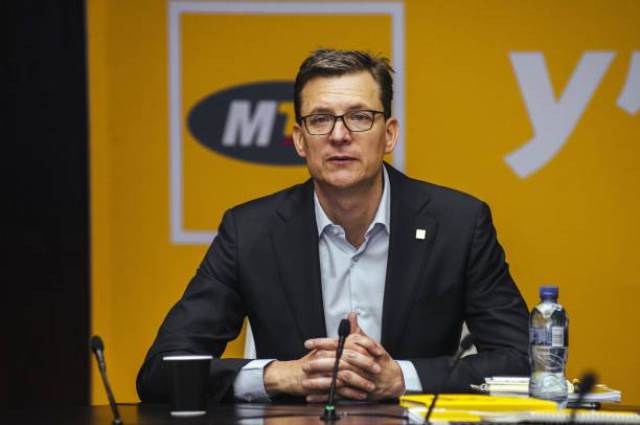MTN Group will apply for a mobile banking licence in Nigeria and plans to launch a service there next year, its Chief Executive Officer, Rob Shuter, said on Tuesday, further embedding the South African telecoms company in its biggest but increasingly problematic market.
Nigeria announced last month that it would allow telecom companies to provide banking services, aiming to give millions of Nigerians without bank accounts access to so-called mobile money services, a policy that has been very successful in Kenya.
Separately, it has been slapped with a $2 billion Nigerian tax bill and whether those issues could influence how quickly MTN secures a licence remains to be seen.
“We will be applying for a payment service banking licence in Nigeria in the next month or so, and if all goes according to plan, we will also be launching Mobile Money in Nigeria probably around Q2 of 2019,” Rob Shuter told a telecoms conference in Cape Town.
Rivals Airtel, unit of India’sBharti Airtel, as well as privately owned Globacom and 9mobile, are also expected to apply for licences.
The success in East Africa of M-Pesa, the mobile money unit of Kenya’sSafaricom, has convinced investors and the industry that financial services is the next growth area for the telecoms sector which is grappling with falling prices for basic services.
If granted a licence, MTN would launch the service in a country where 115 million Nigerians, or 60 percent of the population, does not have a bank account, according the World Bank.
“It’s a huge opportunity for MTN for them,” said Byron Lotter, fund manager at Vestact, which owns shares in MTN. “The problem is they are being held hostage by this $10.1 billion demand because their business is too big to leave.”
Shuter, who has led MTN since last year, also said the company would relaunch mobile money services in South Africa, two years after canning the service. The company has also bought a music streaming business Simfy, which Shuter said was “Africa’s leading music streaming business.”
He did not give details about its plans to relaunch mobile money in South Africa, a market that has proved difficult to crack because around 80 percent of the population already has access to traditional bank accounts.
Shuter, who has experience in banking, is in the middle of a strategic revamp of Africa’s biggest telecoms group to hunt for returns in everything from financial services, music and video games.
Shares in the company rose 1.3 percent to 80.89 rand, outpacing a broadly flat JSE Top-40 index.













